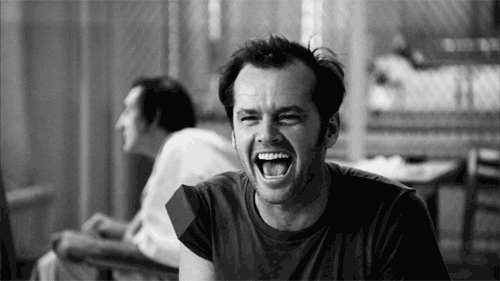Originally published at: https://boingboing.net/2018/07/03/if-theres-a-gaming-disorde.html
…
My guess would be that it’s as simple as the designed addictive (and occasionally predatory) qualities of games being more familiar and easily identifiable than those of websites and social media.
Just another step in the 40+ year campaign to demonize video games.
My guess is that all the staff at the WHO have smartphones, so they can’t possibly be addicted to them…
a desire to cast negative behaviors as the result of individual mental defects rather than more complex social, political, and economic factors at hand
I agree that there’s a dodge here and also see a couple of other factors at work. One is that they feel more comfortable focusing on the compulsive behaviour more associated with young people than they do of behaviours that could also be associated with older ones (young people are usually the focus of moral panics). The other is that they see video games as frivolous non-work activities where the Internet and mobiles are seen as productivity tools (the Protestant Work Ethic is a hell of a drug).
They really ought to call the broader problem “screen addiction disorder” but the people who do this research will have to get over a few hang-ups of their own before that happens.
I’d call it more a campaign to demonise the “wrong” kind of games. It really started with the panic over Dungeons & Dragons. From what I’ve observed, the “wrong” kinds of games are time-intensive ones that distract players from being good little consumers/human-resources (by all means spend $60 on Dark Souls, but for goodness sake don’t play it more than 5 hours a week!).
I don’t consider that a compelling excuse for the exclusion of the latter by the researchers. For example, it’s been well known to anyone interested in tech that Facebook is a predatory company that incorporates things like addictive dopamine-jolt reward-drops and notifications and dark UX patterns into its service. BoingBoing BBS itself, with its Likes and badges, does similar things in a less intense and less predatory and more transparent way.
Is there one for watching too much TV? My parents give me and my brothers grief for watching stuff online or gaming but they likely watch as much TV and movies in comparison
Sooo…the People’s Republic of China wants this, then? Of course those evil turds do.
Meanwhile they’re busy gamifying the entire society.
I think “smartphone addiction” is recognized, but as its component parts. games are content and phones are content vehicles, so it’s apples and applecarts to compare them. If you break up the addictions that smartphones contain: breaking news, social media, work email, games etc… i bet they’re all accounted for.
I didn’t say it was a compelling excuse, just that sometimes the answer to “why is there X and not Y?” is “because X is a comparatively lower-hanging fruit.”
The DSM has always been a reflection of worries of the time. Homosexuality was a disorder until the 1974 edition, reflecting changes in societal acceptance. Likewise, the current edition deletes “Autism Spectrum disorders”. as people are beginning to realize that non neurotypical people aren’t necessarily broken either.
Well, I know a person who wrecked his life with online gaming. I’m not claiming that the game was at fault, I’m just saying that his economic, marital and social self destruction was clearly linked to the game in the same way that a suicide’s death is linked to a suicide weapon.
It seems to me that smart phones aren’t as visibly linked to people’s self harm, so it’s easier to portray games being an agent of destruction, easier to blame the game and not the other circumstances of a person’s retreat into pseudolife.
If there’s a “gaming disorder”, why isn’t there a “smartphone disorder”?
Denial is folded into the disorder.

The WHO use the ICD system, which has also just moved gender dysphoria from “Mental and Behavioural Disorders” to “Conditions Related to Sexual Health”.
The lack of a “smartphone disorder” is symptomatic of a larger syndrome: pharmaceutical sales disorder.
Let the drug manufacturers address their own disorders, and soon enough they will diagnose the rest of us with profitable new disorders.
Or an in-suppprt-of-a-lying-president disorder?
We live in a shit world, with no tangible sense if progress and individual development. In game terms, reality is broken. It’s overrated. From time immemorial, people having been turning on, tuning in, and dropping out.
It’s just that games today offer a relatively risk-free respite from reality. Games tend to lend themselves well to this. Most games offer a mix of external and internal goals. But you can get the same escape reading. Or writing. Or playing model trains.
Gaming isn’t and shouldn’t be treated as a disorder. Fix reality and I’ll spend more time engaged. I don’t need to be constantly reminded that I’m in debt and that no amount of hard work save me.
Like a dictionary the DSM is descriptive, not prescriptive.
But in both cases, a thing is a thing before there is a word for the thing.
Then once you have a word for a thing, that’s a whole different thing.
If you tag a thing as “thing”, you can then have a hard time differentiating the actual thing from the suggestion of “thing”.
But at least once it’s officially a “thing” according to the DSM then you may be able to get some assistance.
How long until not having a smartphone will be seen as a disorder?
